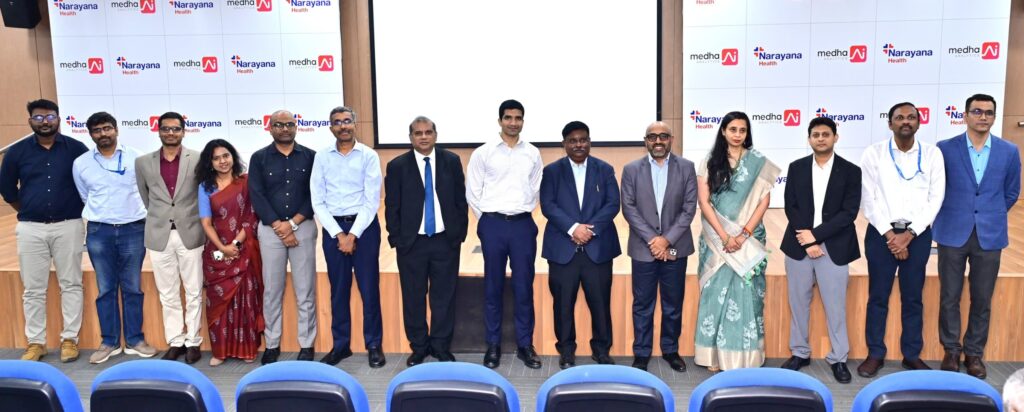
Narayana Health has announced a significant breakthrough in cardiac diagnostics with the launch of an AI-based tool capable of detecting heart failure in just 10 seconds using a standard ECG image. Developed by the Narayana Health Clinical Research team in collaboration with Medha AI, the hospital chain’s Advanced Analytics & AI division, the innovation marks India’s first AI model designed to predict left ventricular ejection fraction (EF) from an ECG.
The model, trained on over 100,000 ECG images paired with echocardiogram data, can accurately assess heart function in near real-time. It has been externally validated on more than 57,000 patients across 14 tertiary care centres, achieving a 97% accuracy rate in identifying individuals with severely reduced EF (≤35%). Notably, these patients were identified an average of 58 days earlier than when traditional echocardiography was ordered.
“This breakthrough represents much more than an AI model — it is a reflection of what Narayana Health stands for: combining clinical expertise, deep research, and cutting-edge technology to solve real problems at scale,” said Dr. Devi Shetty, Founder and Chairman, Narayana Health. “Detecting heart failure through a simple ECG in near real-time is a leap forward in making advanced diagnostics not just efficient but truly accessible to the masses.”
The AI model has been integrated into Athma, Narayana Health’s in-house electronic medical records (EMR) system. It is currently undergoing validation at key facilities including the Narayana Institute of Cardiac Sciences and Mazumdar Shaw Medical Center in Bengaluru, as well as the Rabindranath Tagore International Institute of Cardiac Sciences in Kolkata.
Dr. Emmanuel Rupert, Managing Director and Group CEO of Narayana Health, added, “This AI model is a game-changer — it equips frontline clinicians with diagnostic insights that were previously only accessible through advanced infrastructure.”
The tool’s unique ability to interpret heart function from a simple image of an ECG strip—potentially even one captured via mobile phone—offers tremendous promise for rural and under-resourced settings. “This has the power to transform cardiac care in remote settings,” said Dr. Pradeep Narayan, Chief Scientific Officer, Narayana Health, and lead researcher on the project.
Beyond detection, Narayana Health is exploring regulatory approvals and future applications, including expansion into detecting additional echocardiographic abnormalities and early signs of coronary artery disease.
The organization plans to deploy the tool through mobile medical units to enhance outreach in underserved regions. “Responsible AI in healthcare means fairness in access, accountability in outcomes, and transparency,” said Dr. P M Uthappa, Group Chief Medical Director, Narayana Health.
“This innovation represents the true democratization of heart failure diagnosis,” stated Dr. Deepak Padmanabhan, Senior Consultant, Strategic Lead – Cardiac EP Collegium, Narayana Health. “Diagnosis itself can be complex and depends heavily on clinical experience. This tool supports clinicians with reliable insights, even in resource-constrained settings.”
The model has been presented at leading medical conferences including HRS (Boston), APHRS (Sydney), IHRSCON (Kolkata), and HRX (Atlanta), and has been published in the Indian Heart Journal. It also earned the BMJ South Asia Award for Digital Innovation.
Through its Medha AI division, Narayana Health is embedding artificial intelligence across clinical and operational workflows to improve decision-making, optimize resources, and enhance accessibility—all part of a broader strategy to revolutionize scalable, patient-centric healthcare delivery in India and beyond.
